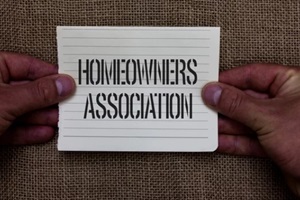 Orange County is home to approximately 5,000 homeowner’s associations. This means that 82% of local residents live in an HOA, contractually bound by the rules stipulated in the CC&Rs (covenants, conditions & restrictions) of their association.
Orange County is home to approximately 5,000 homeowner’s associations. This means that 82% of local residents live in an HOA, contractually bound by the rules stipulated in the CC&Rs (covenants, conditions & restrictions) of their association.
In addition to the many rules to follow that benefit the entire community, governing bodies may elect to impose special assessments to draw money from residents for certain expenses.
However, determining the need for special assessments requires adherence to California’s strict laws governing HOA administration including how payments may be collected and for what reason.
The following explanation looks at the decision-making process and criteria used by HOAs to justify Orange County HOA special assessments.
How HOA Special Assessments Differ from Dues
Homeowners in an HOA must pay regular dues which are collected by the governing body and used for regular work and maintenance around the community.
However, in the event that certain criteria are met, governance may impose an additional bill, called a special assessment, to collect more money above standard dues. HOA Special assessments can arise at any time, leaving homeowners feeling financially unprepared in some situations.
Understanding the laws governing the administration of special assessments helps homeowners to identify an improperly levied assessment.
Special Assessment Criteria
California law requires numerous rules to be followed when imposing special assessments to HOA residents. These include:
Emergency Repairs
One of the only categories of work eligible to be funded using a special assessment is emergency repairs. If a flood destroys the main thoroughfare of an HOA community, the governing body has the right to levy an assessment to draw more money to pay for the repair and make the community safe and usable again.
Large Projects
 The other primary category for which special assessment funds may be used is to undertake large projects that benefit the entire community. Most commonly, such funds are paid toward public facilities such as pools and community centers or to update and expand these resources.
The other primary category for which special assessment funds may be used is to undertake large projects that benefit the entire community. Most commonly, such funds are paid toward public facilities such as pools and community centers or to update and expand these resources.
Budgetary Limits
HOA governing bodies are limited in how much they may charge during a special assessment. According to California law, an HOA may not request more than 5% of the annual budgetary allotment in a special assessment.
This prevents HOAs from placing undue financial strain on households, and requires the HOA to utilize the existing budgetary power first or make adequate plans to afford a project.
Membership Approval
Another requirement governing the ability to levy special assessments is how members are engaged in the process. While an HOA can impose a standard 5% maximum special assessment at any time, community members may meet and agree to pay more than the 5% value if the majority of a quorum consent.
This can enable an HOA to fund larger projects than a standard special assessment may allow as long as the community votes favorably for the measure.
Notice Requirements
HOAs are required to notify residents between 30 and 60 days prior to the due date of the special assessment. This notice must be supplied via a guaranteed method, such as certified mail or an in-person notification.
Residents who are not properly notified of a special assessment may have legal grounds to contest their responsibility for paying it.
Fair Distribution
Special assessments must be applied equally to all households in the community. If the assessment is worth $10,000 and there are 100 households, each would not owe $10,000. Instead, each household is responsible for $100, or the $10,000 divided evenly among all.
Violations of Special Assessment Rules
HOAs may determine that a special assessment is necessary based on emergency conditions or a meeting that agrees that the community would benefit from new or updated amenities.
However, some HOAs may attempt to utilize special assessments for reasons outside their legal right. A special assessment may not be used to compensate for improper maintenance.
 For instance, if the HOA has failed to keep up with proper road care over multiple years, their negligence does not justify using a special assessment to pay for repaving later.
For instance, if the HOA has failed to keep up with proper road care over multiple years, their negligence does not justify using a special assessment to pay for repaving later.
Similarly, special assessments may not be used to pay for repairs that do not impact the community as a whole. If one resident’s roof is struck by a falling tree, this incident does not qualify for a special assessment.
Seek Legal Representation Against Improper HOA Special Assessments
In the hands of a responsible HOA, special assessments can serve as a tool to keep community areas in good repair and ensure resident safety and happiness. However, homeowners have the right to seek legal action if an HOA is incorrectly applying special assessments.
The attorneys at Lehr Law can help you fight back against an HOA that is violating its legal authority. Contact Lehr Law to schedule a consultation.
